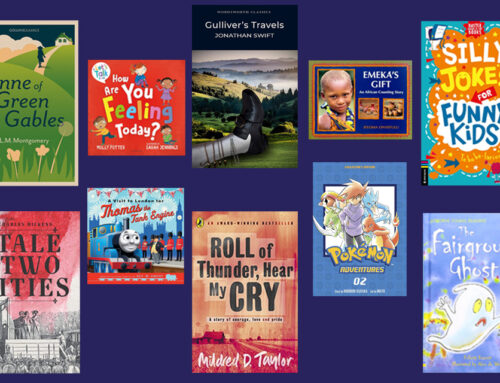When your baby starts to show signs of being bright and energetic, you might feel relieved and proud. As he or she grows into an opinionated, sensitive toddler, you may find comfort that, although demanding, at least they are vibrant and interested in the world. Maybe a strong personality and set of needs starts to show through and you decide to home educate. Or perhaps you opt for the local school, yet seem to find yourself in contact with the teachers much more than all the other parents.
Throughout this time, many parents ask; “What is wrong with me that I can’t find the energy or patience like other parents?” or “I try so much harder than my friends to teach manners, so why is it my child who won’t sit still and asks such blunt questions?” The answer in fact could be that your child has High Learning Potential. Bringing with them an unusual intensity, bright children can exhaust you with their mental and/or physical energy, low need for sleep and high need for being tidied up after! It is critical to get to understand your child’s individual traits so that you can find patience and nurture yourself as you continue to support them.
Is This Due to High Learning Potential?
“Potential Plus UK uses the term ‘high learning potential’ to mean the same as the term ‘gifted’, […] ‘gifted and talented’, ‘exceptional’, ‘more able’ and ‘most able’. […They all refer] to an ability to understand information well, make quick analyses and use memory capacity to learn quickly. […] children with high learning potential are commonly defined as those with cognitive abilities in the top 2-5% of the population”.
Being without a ‘diagnosis’ is often the hardest part for parents; where should you set rules or understand yourselves within your adult/child peer group? It can be easy to wonder what is ‘wrong’ with you or your child when you find it so hard to relate to the experience of other parents. For example, who ‘gets it’ when your child has a meltdown because they ‘only’ scored 9/10 in a quiz, prefers quiet museums to loud parties or breaks your heart being upset by a tragic news story their friends are unaffected by? It is totally understandable that you might begin to feel overwhelmed, lost, isolated or even resentful in these situations.
Know What You are Dealing With
Find out more by investigating the charity Potential Plus UK, their website (www.potentialplusuk.org) and phone helpline. They also offer relevant factsheets (such as https://potentialplusuk.org/wp-content/uploads/2017/02/PA102-Characteristics-of-Children-with-HLP-170131a.pdf) and blogs in the High Learning Potential Parenting series https://potentialplusuk.org/index.php/introducing-potential-plus-uk/latest-news/, exploring individual challenges in more detail.
Research other organisations such as British Mensa (https://www.mensa.org.uk/) and trawl the internet for respectable articles to give you clues, such as https://thepowerofsilence.co/12-signs-you-have-a-truly-gifted-child/ or https://www.verywellfamily.com/characteristics-of-gifted-children-1449114
If you increasingly feel the challenges you face alongside your child might be down to being ‘gifted’ or ‘talented’, check out the Potential Plus UK online questionnaire “Could your child have High Learning Potential?” (https://potentialplusuk.org/index.php/online-questionnaire/).
For an individual, in-depth profile, consider a multi-faceted, face-to-face “High Learning Potential Assessment” (https://potentialplusuk.org/index.php/families/assessments-for-children/), which includes IQ testing but also investigates areas such as Sensory Sensitivity, Memory Processing and a Phonological Skills. The details from these can help guardians enormously to choose how to cope and stay calm.
Get Informed!
Start to learn about the nature of high learning potential so that you can prepare your family, environment and emotions accordingly. Protect your friendships; consider how you phrase things and which things you ‘share’ on social media, for example. There are many accounts of parents of gifted children simply being honest, yet others interpreting it as bragging or competition. It is lovely and very healthy to celebrate a child’s milestones and many parents have absolutely no idea their child with high learning potential is more able, presuming all children to be similar and touching the same milestones. Sometimes using tact you don’t feel is necessary can save a friendship or family tie.
It is also worth realising that many ‘gifted’ youngsters actually lag behind their peers in some areas, for example; poor physical coordination, lack of organisational skills or weak academic achievements in some subjects. So, don’t worry – it’s common for parents to become ‘peacekeeper’ due to their bright child’s high sensitivities, clumsiness, emotional immaturity or outspoken sense of fairness.
Don’t let this drain you! Remember that ‘knowledge is power’ as you begin to build patience, self-help techniques and appropriate support systems for yourself (as well as for your child).
Nurture Yourself
There is a lot involved in parenting a child with high learning potential! Add on top your child’s high physical, intellectual and emotional needs and you might be feeling more worn out and disheartened than you would have imagined. But be encouraged!
- Although it takes a lot of energy and patience, the rewards are great.
- Go gently on yourself.
- Take breaks.
- Find friends and family members who will understand and support you without seeing things as a competition or criticism.
- Build your wider parent-support network within a gifted home education forum, school community or through membership of an organisation such as Potential Plus UK, their events and Facebook group.
Remember –you need to take care of your needs as a human being, not (just) the complex needs of your child.







